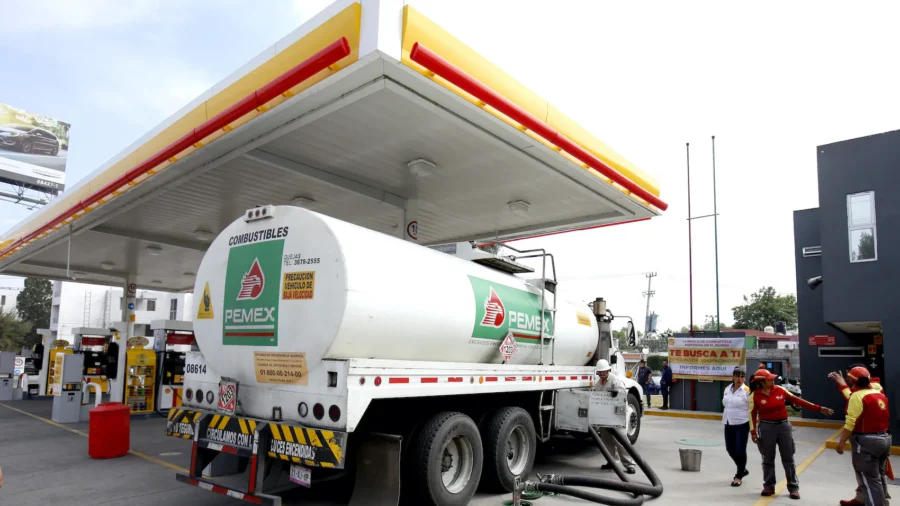The U.S. Treasury Department announced Sept. 10 that it has imposed sanctions on nine Mexican nationals and 26 entities associated with a fuel theft operation allegedly run by the Jalisco New Generation Cartel (CJNG) in Mexico.
According to the treasury, Ivan Cazarin Molina, known as “El Tanque” or “The Tank,” leads the cartel’s fuel theft arm, generating tens of millions of dollars annually through the sale of stolen gasoline.
They said CJNG is also responsible for drug trafficking a “significant” portion of fentanyl into the United States and that cartels have also turned to fuel theft in recent years, which has cost the Mexican government billions in lost revenues.
“President Biden, Vice President Harris, and the Treasury Department are committed to taking decisive action to disrupt the funding and operations of deadly fentanyl-trafficking cartels like CJNG,” Deputy Secretary of the Treasury Wally Adeyemo said.
According to the treasury, Molina allegedly manages massive storage tanks in Mexico’s Gulf coast state of Veracruz—which is how he earned his nickname—and is where the fuel is held before being sold through a network of gas stations he controls. The treasury alleges that some of the fuel is sold to third parties illegally and eventually makes its way into the United States.
Revenue Source for Cartels
The treasury said that fuel theft is the most significant non-drug revenue source for Mexican cartels and other illicit actors.
“Thieves in Mexico (or huachicoleros) steal fuel from Mexico’s state-owned petroleum company, Pemex, through numerous means, including illegally drilling taps into fuel pipelines, stealing from refineries, and hijacking tanker trucks,” the treasury said. “They also use bribery and violence in support of these illicit activities.”
The fuel is sold through the black market in Mexico, Central America, and the United States.
The gas stations operated by Molina’s network allegedly use professional-looking logos, slogans, and names such as “Etanofuel” and “G Energy” to appear legitimate, according to the announcement.
Among those sanctioned is Molina’s older brother, Cesar Cazarin Molina, nicknamed “Tornado,” who is currently imprisoned in Mexico but allegedly remains involved in cartel activities. Cesar is a member of the cartel’s “armed wing” and was arrested in 2013. Both brothers have been known to go by the alias Victor Hugo Delgado Renteria.
Tornado, like Molina, was a founding member of CJNG, and both are close friends with the cartel’s leader, Ruben Oseguera Cervantes, who is known as “El Mencho.”
Molina’s father-in-law, Domingo Medina Diaz, known as “El Mingo,” and nephew, Jahir Cazarin Ramos, were also included in the sanctions list.
The new sanctions freeze any U.S.-based assets of Molina, his accomplices, and the entities involved, which includes 11 Veracruz based retail gas stations, a construction company, and a 3D Modern Printing Press, among others. U.S. citizens are also barred from conducting business with any of the nine men or 26 entities.

